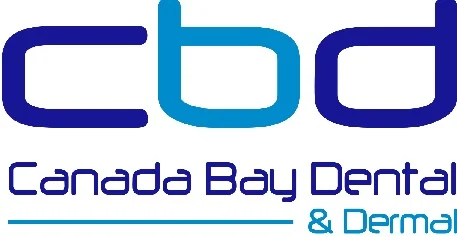Complementary Healthcare Modalities – Acupuncture
/Acupuncture, along with Chinese herbal medicine, is a key component of Traditional Chinese Medicine (TCM), one of the oldest healing systems in the world. Acupuncture has been utilized in China for several thousands of years, and began to be used widely in other countries of the world during the 1970’s. Let’s have a look at some of the basics of how acupuncture works, and how it may help support good oral health and overall health.
In Australia, over 2200 practitioners of acupuncture and Chinese herbal medicine are regulated through theAustralian Acupuncture and Chinese Medicine Association Ltd (AACMA). In July of 2012, the Chinese Medicine profession joined the National Registration and Accreditation Scheme for the Health Professions. This is the same regulatory body that oversees medical practitioners, physiotherapists, chiropractors, dentists, nurses and midwives etc. In order to legally practice their profession, Chinese medicine practitioners, including acupuncturists, must now be registered with the Chinese Medicine Board of Australia (CMBA).
How Does Acupuncture Work?
According to the principles of TCM, all health is determined by the free flowing circulation of energy through the body. This energy is known as Qi (pronounced, chee). It is the life force that nourishes all of the body’s internal organs, bones and muscles. Over the centuries, the Chinese noted that this Qi flows throughout the body in predictable pathways, known as meridians. They have been able to make a map of these meridians throughout the body, and have assigned correlations between different meridians and specific organs as well as emotional patterns.
When the flow of Qi is interrupted in any way, either due to stress, trauma or some sort of invasion to the body, the result is a disharmony that causes pain or other type of emotional or physical dysfunction. The art and science of acupuncture is in locating the points of blockage, then stimulating those points to get the energy flowing properly once again.
How Does an Acupuncturist Treat a Patient?
When a patient presents for treatment, the acupuncturist will start by taking an extensive medical history as well as a survey of current issues and complaints. The physical exam includes a procedure known as palpating, where the practitioner will apply gentle pressure to various points along the meridians known as “acupoints.” Typically, if there is an energy blockage involving that particular acupoint, the patient will register a sensitivity or even mild pain when the acupuncturist presses down. This is a signal that a blockage exists at that spot. The acupuncturist will then insert a needle at that location in order to stimulate the flow of energy once again.
The needles used in acupuncture are actually only about as thick as cat’s whiskers. Since they do not have anything injected through them, they are very thin, solid and flexible. Usually, the patient only feels a mild pricking sensation that does not last. It is a relatively painless procedure for most people. The typical treatment may entail anywhere from 10-20 needles. Hands and feet are popular sites for treatment, as are the arms, legs and ears.
What Conditions Are Treated by Acupuncture?
The most popular ailments that respond to acupuncture treatment involve pain. Painful injuries as well as chronic pain can all be treated successfully. Other types of conditions that often see relief from acupuncture are the type of difficult to diagnose syndromes involving the immune system or the reproductive system – PMS, fibromyalgia, chronic fatigue syndrome, even arthritis. Acupuncture has been useful in providing fertility support, as well as treatment for menopausal symptoms. Indeed, acupuncture can be very helpful in all matters of menstrual regulation.
Other conditions that have seen good documented results include Crohn’s Disease, Irritable Bowel Syndrome, nausea and vomiting due to chemotherapy, and compromised immune systems due to AIDS, diabetes or other illnesses. Withdrawal symptoms due to drug cessation, including smoking cessation, can be greatly reduced with acupuncture. In fact, many detox clinics use acupuncture during the early phases of treatment to help patients get over the initial difficulties of withdrawing from addictive substances.
Acupuncture’s Relevance to Good Oral Health and General Health
As a tool in overall health maintenance, acupuncture along with its sister TCM component, Chinese herbal medicine, can be very useful in maintaining optimum good overall health. As we have seen in our examination of the relationship to general health and the health of teeth and gums, a strong immune system as well as good nutrition are both important foundations to oral health. Acupuncture is a great medical system to boost overall physical functionality. It also does not differentiate between the physical and emotional realms, seeing both as a function of energetics. Therefore, people who find themselves at a difficult nexus between emotional hardship and physical impairment may also find relief and comfort in their acupuncture treatments. There is also the fact that acupuncture has been shown to stimulate the release of endorphins by the brain into the body, and that just makes everyone feel good.
